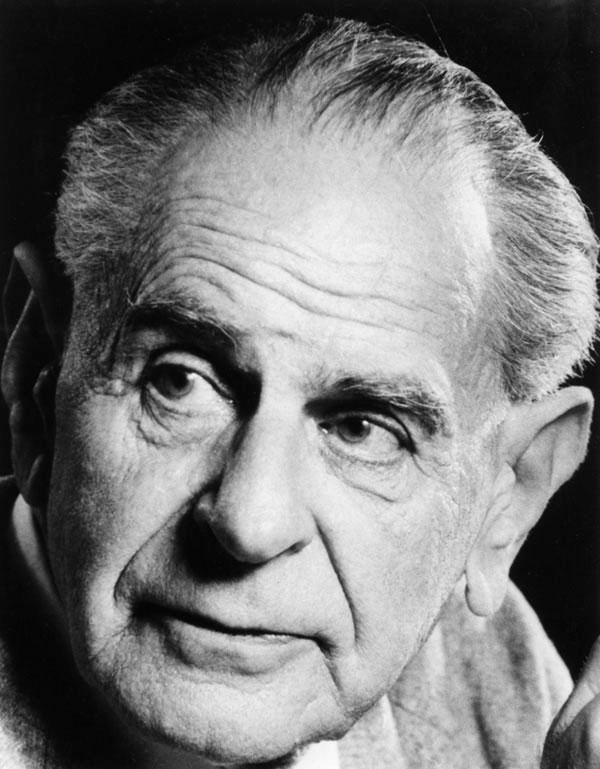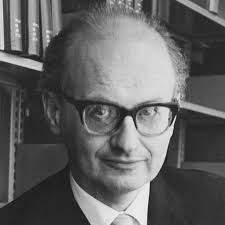PHIL 4300 Philosophy of Natural Science


PHIL 3120-901 (download syllabus pdf) U Toledo Distance Learning Course : January 19 - May 9, 2017 Nythamar "Nita" de Oliveira, Ph.D. Dept of Philosophy, Scott Hall Phone: 419-530-6190 Office Hours: Drop Me a Line Emails: Nita.De_Oliveira@utoledo.edu / nythamar@yahoo.com Course Website: http://www.nythamar.com/science.html Personal Website: http://www.nythamar.com/ PHIL 4300 Philosophy of Natural Science
Course Description:
[3 credit hours] A study of scientific inquiry including the structure of scientific explanations, relations of evidence and confirmation, the metaphysics of theoretical entities, and the nature of scientific change and progress. DL course. The course is accessible to students coming from various academic backgrounds and its online format is very practical and pleasant. This course is being offered entirely online through the Required Text:
Peter Godfrey-Smith, Theory and Reality: An introduction to the philosophy of science. University of Chicago Press, 2009.

Blackboard ID access
How to do well in this DL course
In this course, we will be exploring the philosophical issues that arise in regard to the theory and practice of the natural sciences. We will begin by looking at key definitions, concepts, and approaches to what might be a scientific method, proper research methods, pseudoscientific claims, and to also gain a basic toolkit for thinking critically about these issues. Then we will discuss the writing of various philosophers about some of the basic controversies in the philosophy of science. These will include: defining science, and the difference between genuine and pseudoscience, how natural and social sciences differ, problems unique to the social sciences, the nature of scientific laws and the role they play in scientific explanations, the relationships between how we observe nature and the theories we form as a result, how theories are confirmed and accepted, and the relationship between science and values.
ISBN-13: 978-0226300634; ISBN-10: 0226300633
Further Reading / Reserved Materials (Library):
E.D. Klemke, Robert Hollinger, and David Wyss Rudge, eds. Introductory Readings in the Philosophy of Science. Amherst, NY: Prometheus Books, 1998.
Karl Popper, The Logic of Scientific Discovery. 2nd Edition. Routledge, 2002. ISBN-13: 978-0415278447; ISBN-10: 9780415278447
Karl Popper, Conjectures and Refutations: The Growth of Scientific Knowledge Routledge, 1963. ISBN 0-415-04318-2
Bas van Fraassen, The Scientific Image. Oxford: The Clarendon Press, 1980. ISBN 978-0-19-824424-0.
Thomas Kuhn, The Structure of Scientific Revolutions. 2nd. ed. University of Chicago Press, 1970. ISBN 978-0-226-45804-5.
Gary Gutting, Continental Philosophy of Science. Blackwell Publishers, 2004.
David Papineau, Problems of the Philosophy of Science. Oxford Companion to Philosophy. Oxford University Press, 2005.
Grades are based on point accumulation throughout the six units in 15 weeks (from January 19 through May 9, 2017). There are 6 Homeworks/Quizzes worth 10 points each (total up to 60 points). Participation is worth up to 30 points (by sharing your views, insights, comments, and criticisms with classmates on the Discussion Board on-line on a weekly basis, at least one posting per unit). The Final Exam is worth 10 points. Students can earn up to 100 points in this course. Final grades for the course are based on the following scale:
93-100 = A
90-92 = A-
87-89 = B+
83-86 = B
80-82 = B-
77-79 = C+
73-76 = C
70-72 = C-
60-69 = D
59 and Below = F
Academic Honesty:
Neither plagiarism (i.e., presenting the written work of another as one's own) nor cheating (i.e., providing answers to exam questions or receiving exam answers from another) will be tolerated. Any academic dishonesty will be disciplined according to the guidelines in the
Accessibility:
If you need special accommodations to folow this course, please notify me immediately. Any student needing accommodation based on the impact of a disability and students with documented disabilities should contact the Office of Accessibility (419.383.5792 - http://www.utoledo.edu/centers/cci/web/accessibility.html/) to coordinate reasonable accommodations.
Reading Assignments & Class Structure:
Chapters on the schedule refer to the assigned readings from the textbook (chapters 1-6). Prepare all the readings before the date given. The reading assignments are usually short and hopefully pleasant. Every week you'll have the opportunity to post your comments (at least one posting per unit), ask questions and do self-assessment by taking the quiz oline or writing a couple of paragraphs to address some of the suggested study questions. The quizzes and homeworks tabs are made available during the whole week and the following week, so that at any time during these 2 weeks you can take the quiz online or use the Homework tab to turn in your essay (a couple of paragraphs, at least 200 words, addressing one or two questions from the assigned chapter). Make sure you understand the key concepts and terms for each unit and by regularly visiting the Oxford U Press links to the Student Resources:
OUP Student Resources Portal
YouTube Streaming / Videos in Philosophy of Science
Class Participation
Class participation is essential. That includes active involvement in all phases of the class, including the ongoing Discussions on-line (at least one posting per Unit).
Class Schedule:
Week 1: Introduction: Theory and Science
1.1 Setting Out
1.2 The Scope of the Theory
1.3 What Kind of Theory?
1.4 Three Answers, or Pieces of an Answer
1.5 Historical Interlude: A Sketch of the Scientific Revolution
Further Reading
Week 2: Logic Plus Empiricism
2.1 The Empiricist Tradition
2.2 The Vienna Circle
2.3 Central Ideas of Logical Positivism
2.4 Problems and Changes
2.5 Logical Empiricism
2.6 On the Fall of Logical Empiricism
Further Reading
Week 3: Induction and Confirmation
3.1 The Mother of All Problems
3.2 Induction, Deduction, Confirmation, and Explanatory Inference
3.3 The Ravens Problem
3.4 Goodman's New Riddle of Induction
Further Reading
Week 4: Popper: Conjecture and Refutation
4.1 Popper's Unique Place in the Philosophy of Science
4.2 Popper's Theory of Science
4.3 Popper on Scientific Change
4.4 Objections to Popper on Falsification
4.5 Objections to Popper on Confirmation
4.6 Further Comments on the Demarcation Problem
Further Reading
Week 5: Kuhn and Normal Science
5.1 "The Paradigm Has Shifted"
5.2 Paradigms: A Closer Look
5.3 Normal Science
5.4 Anomaly and Crisis
5.5 Wrap-up of Normal Science
Further Reading
Week 6: Kuhn and Revolutions
6.1 Considerable Upset
6.2 Revolutions and Their Aftermath
6.3 Incommensurability, Relativism, and Progress
6.4 The X-Rated "Chapter X"
6.5 Final Thoughts on Kuhn
Further Reading
Week 7: Lakatos, Laudan, Feyerabend, and Frameworks
7.1 After Structure
7.2 Lakatos and Research Programs
7.3 Laudan and Research Traditions
7.4 Anything Goes
7.5 An Argument from History That Haunts Philosophy
7.6 Pluralism and the Ramblings of Madmen
7.7 Taking Stock: Frameworks and Two-Process Theories of Science
Further Reading
Week 8: The Challenge from Sociology of Science
8.1 Beyond Philosophy?
8.2 Robert Merton and the "Old" Sociology of Science
8.3 The Rise of the Strong Program
8.4 Leviathan and Latour
Further Reading
Week 9: Feminism and Science Studies
9.1 "Science Is Political"
9.2 The Man of Reason
9.3 The Case of Primatology
9.4 Feminist Epistemology
9.5 Science Studies, the Science Wars, and the Sokal Hoax
Further Reading
Week 10: Naturalistic Philosophy in Theory and Practice
10.1 What Is Naturalism?
10.2 Quine, Dewey, and Others
10.3 The Theory-Ladenness of Observation
Further Reading
Week 11: Naturalism and the Social Structure of Science
11.1 Science as a Process
11.2 Kitcher and the Division of Scientific Labor
11.3 Social Structure and Empiricism
Further Reading
Week 12: Scientific Realism
12.1 Strange Debates
12.2 Approaching Scientific Realism
12.3 A Statement of Scientific Realism
12.4 Challenges from Traditional Empiricism
12.5 Metaphysical Constructivism
12.6 Van Fraassen's View
12.7 Representation, Models, and Truth (Optional Section)
Further Reading
Week 13: Explanation
13.1 Knowing Why
13.2 The Rise and Fall of the Covering Law Theory of Explanation
13.3 Causation, Unification, and More
13.4 Laws and Causes (Optional Section)
Further Reading
Week 14: Bayesianism and Modern Theories of Evidence
14.1 New Hope
14.2 Understanding Evidence with Probability
14.3 The Subjectivist Interpretation of Probability
14.4 Assessing Bayesianism
14.5 Scientific Realism and Theories of Evidence
14.6 Procedural Naturalism (Optional Section)
Further Reading
Week 15: Empiricism, Naturalism, and Scientific Realism
15.1 A Muddy Paste?
15.2 The Apparent Tensions
15.3 Empiricism Reformed
15.4 A Last Challenge
15.5 The Future
Further Reading
Apr 26 - May 2 : Make-Up / Bonus / Midterm # 2
May 3-9: FINAL EXAM (multiple-choice exam, covers all material Weeks 1-15/Units 1-6)
Course Website: http://www.nythamar.com/science.html
Related Links:
Wiki entry on Philosophy of science
Philosophy of science in the Internet Encyclopedia of Philosophy
University of Pittsburgh Department of History and Philosophy of Science
LSE Centre for Philosophy of Natural and Social Science (CPNSS)
Minnesota Center for Philosophy of Science
Philosophy of Science Links
Stanford Encyclopedia of Philosophy entry on the Unity of Science
YouTube: Philosophy of science in fifteen minutes
UT Course: Philosophy of Religion
UT Course: Business Ethics
UT course on Medical Ethics
UT Course on Buddhism
UT Course on Contemporary Moral Problems
UT Course "Intro to Philosophy"
Jewish Philosophy Seminar





